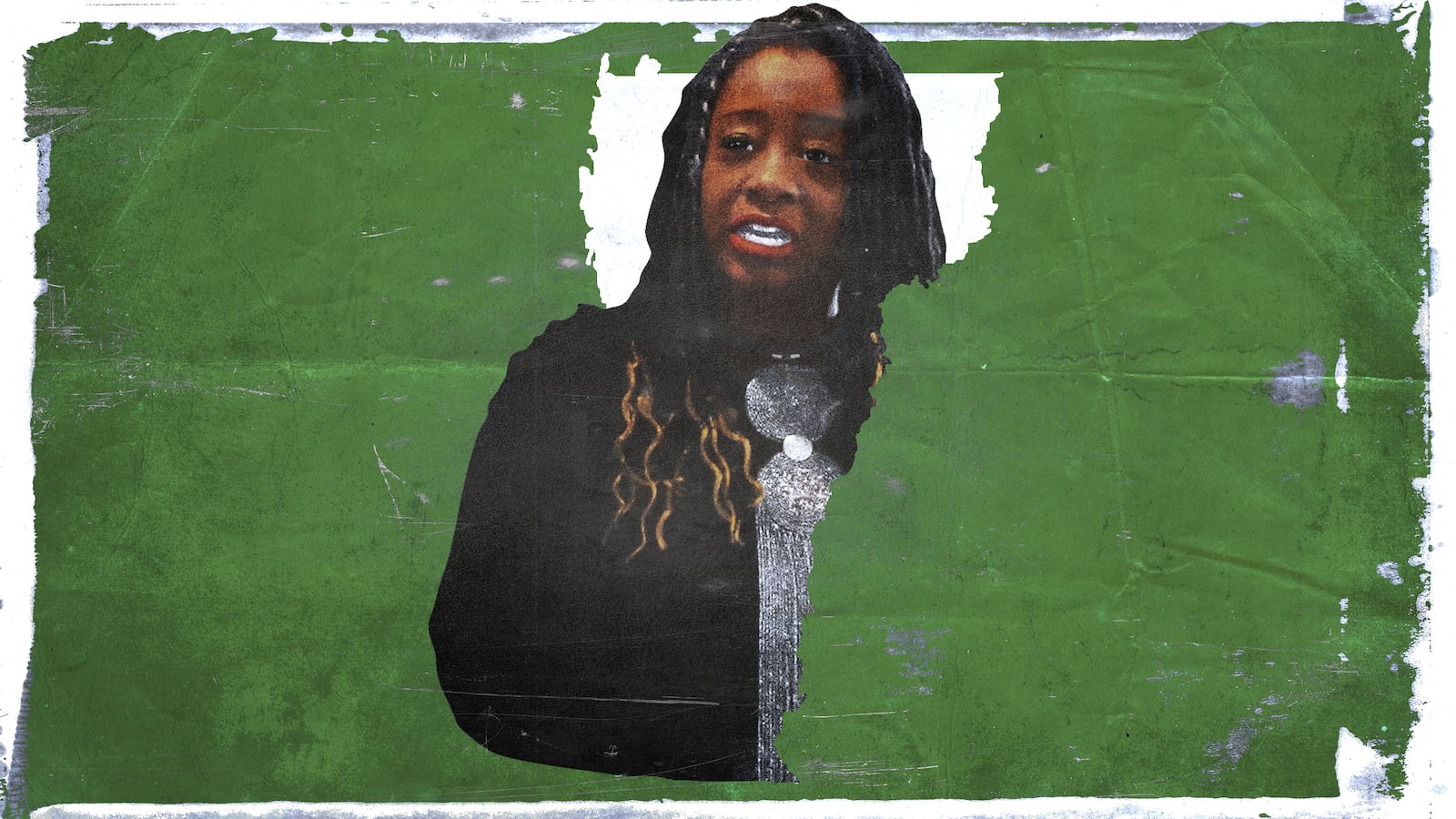If I asked you to guess which state in 2018 had an African-American elected official hounded out of office after enduring two years of racist abuse that no one seemed able to stop, most likely you’d guess Mississippi, Alabama, or some other Deep South backwater.
But to the dismay of progressives, the answer is Vermont. That’s right: State Representative Ruqaiyah “Kiah” Morris, 42, who was the legislature’s only black female elected official, resigned in September 2018, to the shock of many Vermonters, following racist threats, primarily from a white supremacist in the state named Max Misch.
And last Monday, Morris held a press conference at the Congregation Beth El synagogue in Bennington to discuss her travails. "All of the accounts of what happened to me and my family over the years are enormous in scale and historically rooted in a legacy of white supremacy, misogyny and inequity," Morris said. "We did everything that we were told to do, reported everything, held nothing back and trusted in a system that, in the end, was insufficient and inept at addressing and repairing the harm done. In the end, we were told there was nothing to be done.”
As the press conference was winding down, Misch arrived, wearing a Pepe the Frog T-shirt—a symbol adopted by white supremacists. Pandemonium ensued. Supporters of Morris began shouting, “No, no, no!,” “Out!,” and “This is not safe,” as they quickly surrounded Misch and held up their coats to conceal him. When asked why he attended Morris’s press conference, Misch told the Burlington Free Press last week: “I like trolling people—it’s fun.”
“I thought it was disgusting [that Misch showed up],” Vermont State Representative Sarah Copeland-Hanzas told The Daily Beast. “The purpose of that press conference was to affirm that we have more work that we need to do and that we all are committing to working together. It was really surprising and disheartening.”
"I’ve never seen racist abuse quite this bad,” Copeland-Hanzas said.
Morris first won election to the state legislature in 2014, but her racist abuse did not begin until two years later during her reelection campaign. After winning the Democratic primary in 2016, Misch and other white supremacists began racially harassing her on social media.
One Twitter message he wrote read, “Sheeeit, I be representin dem white muhfugghuz of Bennington, gnome sayin?” Another said, “Kiah Morris hard at work destroying White Vermont,” and “Go back to Africa, it’s the only place you’ll ever be safe.”
Soon swastikas appeared around her property, and she and her husband found themselves frequently calling 911 to report strange vehicles outside their home. Their home and cars were also broken into.
When Morris went to cast her ballot in November 2016, Misch was waiting for her at her polling place. Morris soon thereafter applied for a restraining order, which was granted, but as soon as it expired a year later, Misch began harassing her again.
“You will never silence me,” Misch wrote on Morris’s Twitter feed on July 27, 2018 after the restraining order ended. “Every time you attend a political rally at the Four Corners or another local venue and I’m aware of the event, I will troll the hell out of you and the other subversives there. Maybe I’ll bring a friend or three with me too.”
Misch, who is in his mid-thirties, is a military veteran and identifies with the alt right. He lives in Morris’s Bennington district, and in another social media post, he claimed that Morris’s race prevented her from adequately representing their majority white community.
By 2018, the cumulative toll of the harassment, which included a potential death threat, began affecting her 7-year-old son. The extra stress also further impacted her husband James Lawton’s open-heart surgery.
The big question, of course, is why this was allowed to happen for so long in this progressive Valhalla. Well, alongside Morris and Lawton at the press conference was Vermont’s Attorney General T.J. Donovan, who read the findings of the state’s investigation. The report confirmed Morris’s claims, but it also said that Misch’s actions were protected under the First Amendment (and that police could not prove that Misch was behind the break-ins).
The fact that our existing laws left lawmakers and Morris practically defenseless against Misch’s racism should infuriate all advocates of racial equality, and prompt profound questions about the adequacy of our laws. For example: Does our interpretation of the First Amendment actually embolden white supremacists to make minorities feel less safe?
“It is yet another wake-up call,” Copeland-Hanzas told me. “We’ve got serious issues that we need to deal with, and it is going to take a lot of coming together in the state to figure out how we can affect that cultural change.”
It is both surprising and not that this happened in Vermont. The state is overwhelmingly progressive—Senator Bernie Sanders regularly wins re-election with over 80 percent of the vote. But it’s also over 90 percent white. Many Vermonters can easily go days and weeks without seeing a person of color.
By now you may be wondering: What if anything did Sanders do here? He and the rest of the congressional delegation have issued statements denouncing racism and xenophobia, vocally come out against the abuse Morris suffered, and supported an in-depth investigation. “This is outrageous, not what Vermont is about, and must be thoroughly investigated. Kiah has been an excellent representative for the people of Bennington on so many issues,” Sanders’ statement said in part.
But it’s odd that more wasn’t done. It seems that perhaps the state’s white supremacists became more emboldened after Donald Trump became president, but because all these other Vermont progressives were white, it didn’t really impact them directly. If this iteration of progressivism actually enables white supremacists, and fails to protect minorities then we’ve sadly made very little progress.






